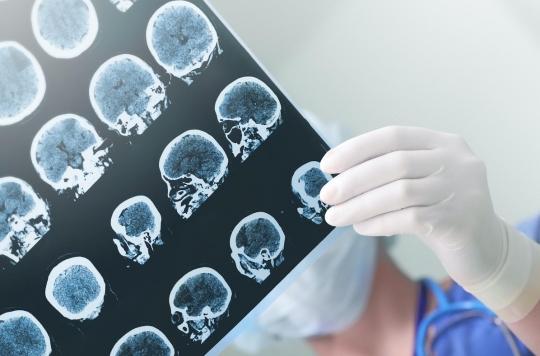A patient, who presented with symptoms of Alzheimer’s, saw his condition improve after a faecal transplant to treat a resistant bacterial infection. A case that has led researchers to launch clinical trials to see if this method can become a treatment to treat the symptoms of this degenerative disease.

- An octogenarian underwent a fecal transplant, improving his living conditions several months later by making his Alzheimer’s symptoms disappear.
- Studies are underway to find out if this technique can be applied on a larger scale.
This is the story of an 82-year-old man who, thanks to a rectal fecal transplant, recovered from an infection and saw his Alzheimer’s symptoms improve considerably. The patient was hospitalized for a recurrent lung infection with Clostridioides difficile, a bacterium that is resistant to antibiotics. In addition to this infection, the octogenarian has various symptoms of Alzheimer’s, such as confusion, memory loss, depression, flat emotions, societal difficulties as well as in carrying out daily tasks.
A trial in progress
To treat the patient, the doctors decided to do a fecal transplant through the rectum. The results were more than positive and reported in the Journal of International Medical Research. The intervention enabled the patient not only to recover from his infection but also to significantly improve his Alzheimer’s symptoms two months later. Neurocognitive and neuropsychiatric tests confirmed these improvements and attested to normal cognition. Six months later, the patient continued to improve and managed to score even better on cognitive tests.
If this transplant has cured the patient, no conclusion can be made on the effectiveness of such an operation to treat Alzheimer’s. “No conclusions can and should be drawn from this type of isolated observations, warns Harry Sokolprofessor of gastroenterology and nutrition at Saint-Antoine Hospital, Futura. There are, at this time, no solid data on the safety or effectiveness of fecal transplantation in Alzheimer’s disease.” For this, further studies need to be conducted. “A randomized, double-blind, placebo-controlled trial is currently underway to assess the efficacy of fecal transplantation in Alzheimer’s disease, the results of which are eagerly awaited..”
The microbiota-Alzheimer’s link already studied
In 2016, already, the link between the intestinal microbiota and neurodegenerative diseases, such as Alzheimer’s, was highlighted. This link is materialized by two proteins: amyloid and alpha-synuclein. By injecting rats with bacteria composed of amyloid and capable of producing alpha-synuclein in the brain and intestines, the researchers estimate either that the production of amyloid by bacteria in the microbiota leads to the creation of immune cells and leads to inflammation of the brain, or that it promotes the clumping of proteins produced by the microbiota in the neurons. More recently, a study suggested that inflammatory bowel disease (IBD) could double the risk of developing dementia. The risk would then be six times higher, explaining in our case that the infected patient has also developed signs of Alzheimer’s.

.

















